The Sociologists Network Fall 2017

Where Do Ideas Come From?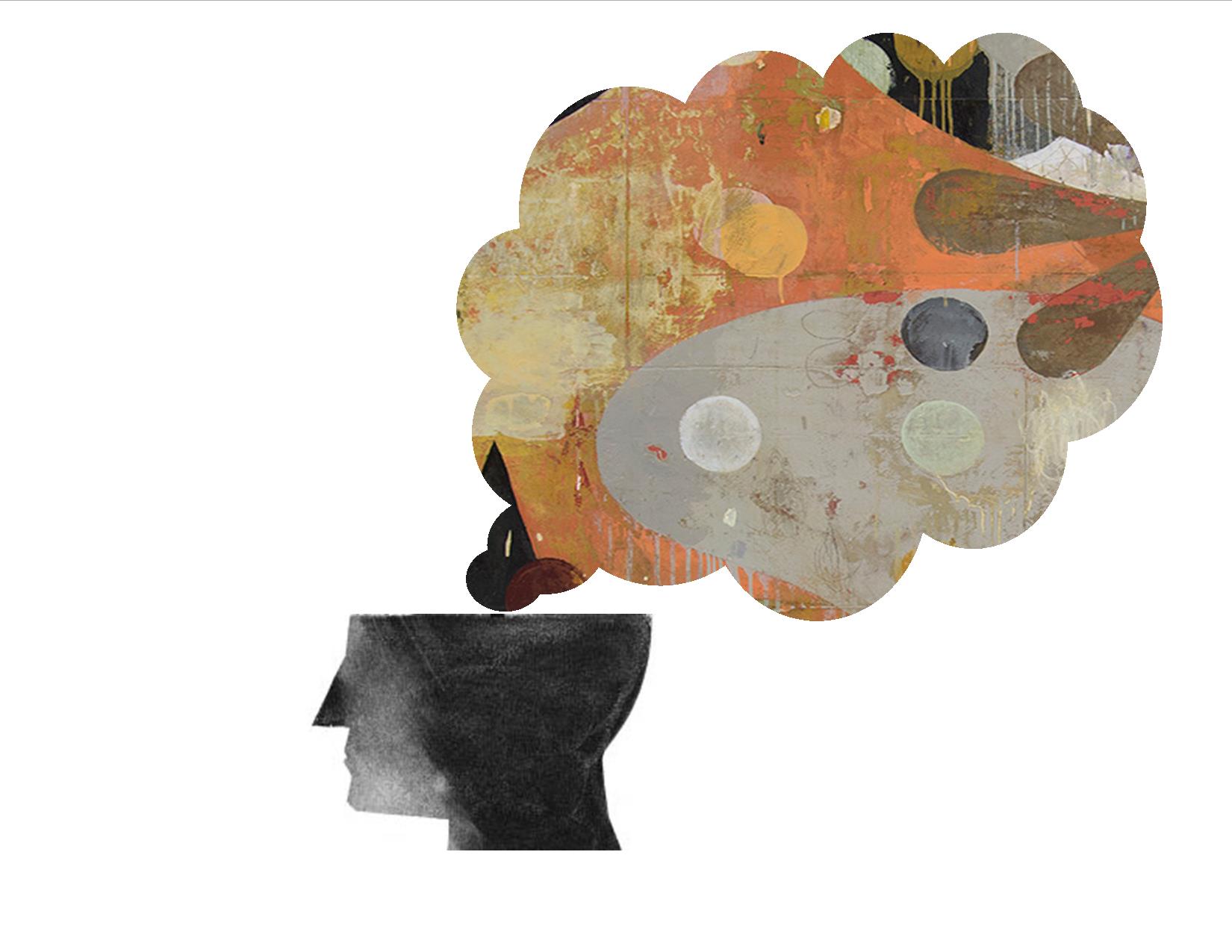
Sociological ideas come from relationships. Social relationships have already shaped the lives of every student who shows up to their first sociology class. Those experiences produce the questions that drove them to try to better understand society: how it is and how it changes. But, how do students go from their own sets of experiences and questions to formalized research, data collection, and professional efforts at understanding? Of course, students attend classes where they can be exposed to new ideas and perspectives, methods, and deeper explorations of social topics; yet, sometimes, it just might also be an informal social context where the free flowing sharing of experiences and questions can lead to unexpected insights about the world. It's a more direct way of learning who else in the discipline is most interested and driven to pursue the same concerns. It was in pondering how to routinely produce that kind of spontaneity that the notion of Drinks and Dialogue came about.
CoCo James, a sociology graduate student who loves studying gender and coordinating the department's
internship program, collaborated with Zachary Franzoni, the department's undergraduate advisor whose own M.Ed. focus on critical race theory
informed his concern with students' opportunities. Out of a brainstorming session
with Ming Wen, chair of the sociology department, they put together a weekly get together
for sociable sociologists. Both Zach and CoCo wanted to support the idea that a sociology
degree isn't a checklist of courses to get through toward uncertain ends, but rather,
the opportunity to develop ever growing competencies and confidence with a mentor
rooting for a student and helping them recognize the offerings that best prepare them
for their future aspirations. 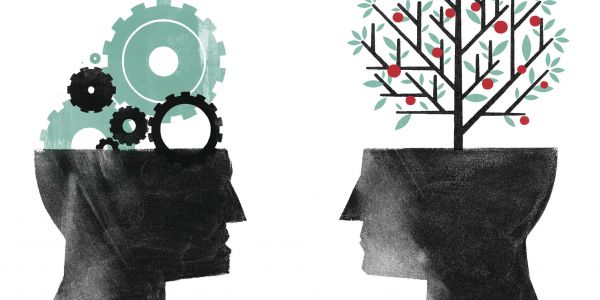
At a Drinks and Dialogue, (which is just like it sounds, a campus room, some light refreshments, and relaxed conversation) students find a unique opportunity to get to know professors, graduate students, and peers-- and in the process, just maybe become more involved in the Sociology Student Advisory Council; or discover the perfect mentor for a research project; or find out about an internship they didn't know existed. Relationship building of this kind helps students find colleagues and mentors who are interested in guiding them through the development their talents, abilities, and interests. It's in contexts like these that students forge memorable and formative foundations for their own research and career paths. Drinks and Dialogue will be continuing into the Fall 2018 semester.
The Estilo Bravío of Lucha Reyes 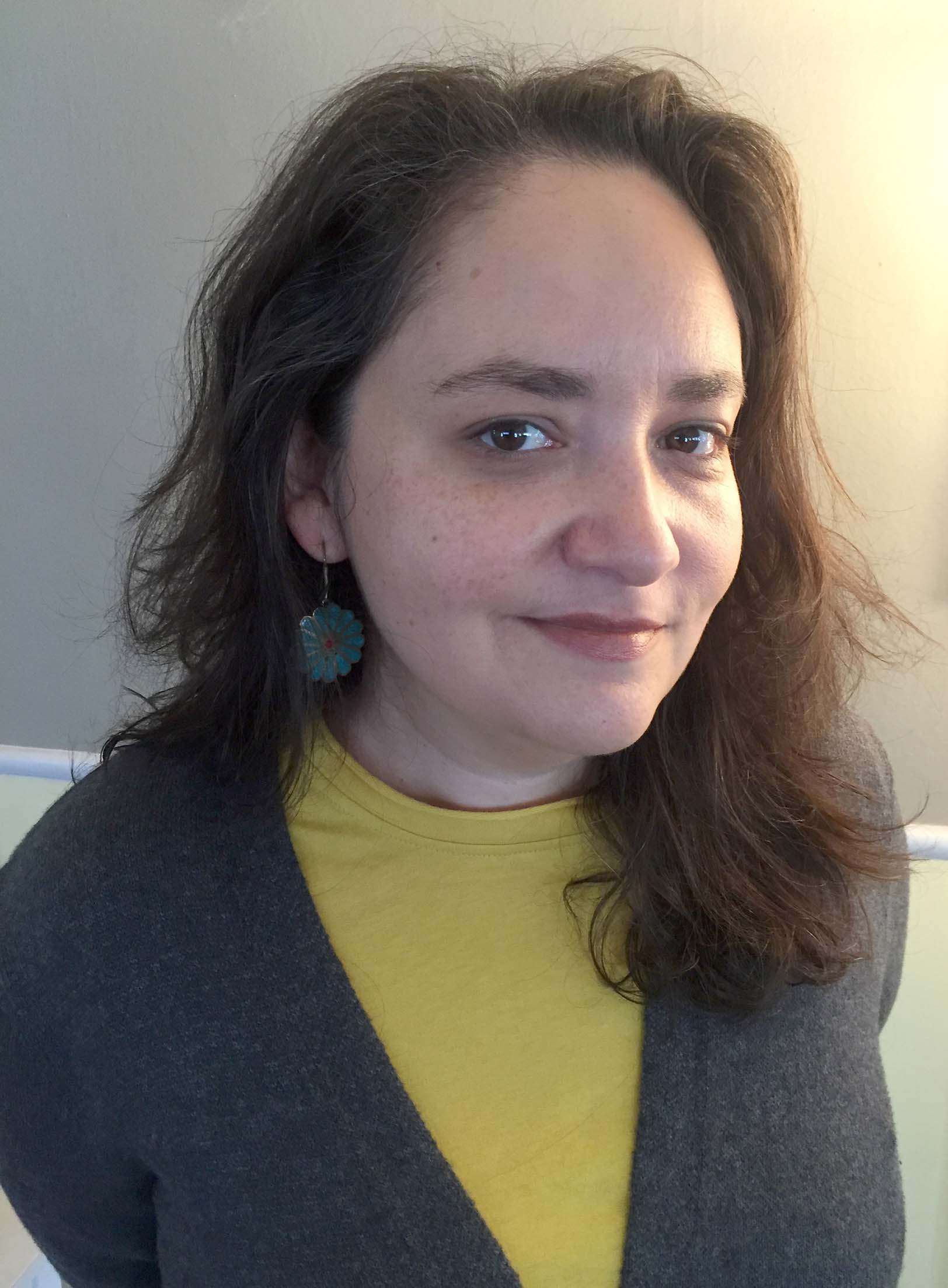
After writing a groundbreaking book on the significance of gender, national identity,
and tequila in Mexican culture, ¡Tequila!: Distilling the Spirit of Mexico, Marie Sarita Gaytán has recently turned her attention to another symbol of Mexican culture, the musical
genre, canción ranchera. Within this tradition, a fascinating, yet marginalized, figure emerges. According
to Gaytán's latest article, "Queening/Queering mexicanidad: Lucha Reyes and the Canción Ranchera," Lucha Reyes (1906-1944) "was marginalized because she visually and vocally violated
the gender norms of the period, queered the ranchera genre, and challenged the heteronormative
contours of mexicanidad (Mexicanness)."
Gaytán contends that Reyes embodied "estilo bravío" (brave or bold style) and
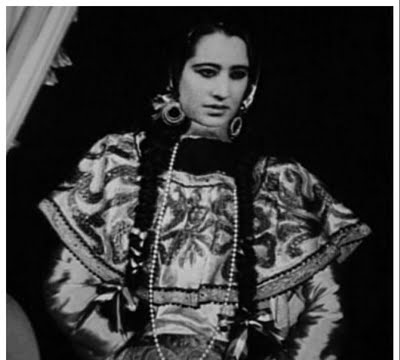
Lucha Reyes date unknown
not only deserves greater recognition as one of the most impressive ranchera entertainers (she starred in films as well as albums), but also notes her influence on women ranchera singers including those making the Mexican punk scene. Not only was her personal style bold but she sang about subjects familiar to working class women, yet socially forbidden to speak about such as drinking tequila. As Gaytán put it, "By claiming to drink too much tequila, Reyes violates gender-appropriate and middle-class norms, a Mexicana vernacular that spoke to the experiences of poor or working-class women who were often assumed to lack cultural refinement...the name, 'La Tequilera,' (woman tequila drinker) signals a gendered play on language, as “tequila”in Spanish is always preceded with the masculine pronoun “el.”
Gaytán remains committed to politically analytical scholarship in the hope that academic writing can make a contribution to social justice. Her engaging writing style, both personal and political, ensures an audience beyond academia. Recovering "lost" figures who dare to transgress gender boundaries in order to express their own lived realities contributes to understanding both the structures that impose gender boundaries and the emotional life of those hemmed in by them. Through Gaytán's work, we can expand the social imaginary of possible resistance with Lucha Reyes as a shining example. As , Gaytán describes her, "Bold and brilliant, Lucha Reyes was and remains one of Mexico’s most extraordinary musical performers ever to have interpreted the ranchera and to have challenged the masculinist and heteronormative dimensions of mexicanidad in which it is embedded."
Marie Sarita Gaytán is an Assistant Professor of Sociology and Gender Studies at the University of Utah. She is winner of the 2016-2017 University of Utah College of Social and Behavioral Science's Superior Research Award.

With a Warming Planet in the Balance
Climate change is a multi-dimensional problem. To begin to understand its consequences and especially its human sources will require the application of multiple perspectives. Few people understand this as well as Lazarus Adua, an Assistant Professor of sociology newly joining the University of Utah faculty as of Fall 2017.
His research weaves together and tests the views of ecological modernization, political economy, and human ecology. In one of his recent articles, "The human dimensions of climate change: A micro-level assessment of views from the ecological modernization, political economy and human ecology perspectives" Adua notes that,
"There is widespread recognition of climate change's ominous potential to disrupt the functioning of social and biological systems, and of the need to act to reduce human effects on the climate. Some of the social impacts of climate change include global and localized food security challenges...disruption of the traditional lifestyles of native and aboriginal people...increased prevalence of food-borne, water-borne and viral diseases...increased injuries and deaths from severe weather events...and water supply difficulties in some locations...While social systems are already being buffeted by the negative impacts of climate change, the IPCC...observes that failure to act quickly and decisively to mitigate rising emissions of GHGs (green house gases) will likely lead to the grave situation where these impacts exceeed the capacity of natural and human systems to adapt."
With so much at stake, there is even greater pressure to be sure that the variables under study are the right ones and that variables that contradict expectation are not excluded, yet that's what Adua found in a number of studies that may be relying in too optimistic a way on ecological modernization theory. Adua's research findings have challenged "a key proposition of ecological modernization" which is "that technological innovations can pave the way for the 'greening' of production and consumption." The picture changes when the political economic perspective is brought in. While the political economic perspective has been pointing out for some time that when looking at GHGs made in the production process, scale matters as much as green technology. The larger the scales of production the less of an impact, green technology can have to offset it. Adua finds this insight holds true for consumption as well as for production, but this was getting missed in a lot of research.
Adua noted that, "a good proportion of (articles focused on energy consumption) were either based on subnational data or excluded several important variables." Adua suggest why this would be. It might have something to do with social pressures driven by the presence in the culture of "a well-orchestrated disinformation campaign concerning the science of climate change...and whipped up fears about the economic consequences of limiting the emission of GHGs."
The overly optimistic research tended to support the status quo and an approach that was popular within U.S. government entities. As Adua put it, "the nation's current policy focuses quite heavily on efficiency improvement via technological innovations," but whether these innovations were sufficient would be the subject of Adua's investigations. What he found instead was a mixed picture. While it did make some difference to install green technological innovations in homes, those who could afford these additions tended to be affluent. It remained to be seen whether lifestyle changes among affluent adopters were correspondingly adapted to reduce consumption overall. If not, affluent lifestyle and consumption levels might be remaining at a scale that outweighs the impact of technological improvements.
A much earlier study by Adua revealed a finding very much consistent with the Jevons paradox. The study, published in Energy Policy, revealed significantly higher energy consumption among households that invested in energy efficiency improvements than households that did not make such investments. Jevons had argued many years ago that, "it is a confusion of ideas to suppose that the economical use of fuel is equivalent to diminished consumption. The very contrary is the truth." Adua's arguments have been that green innovations can be useful for environmental management, but only if they are not overwhelmed by expanded or expanding consumption.
Lazarus Adua teaches environmental sociology and methods of social research.
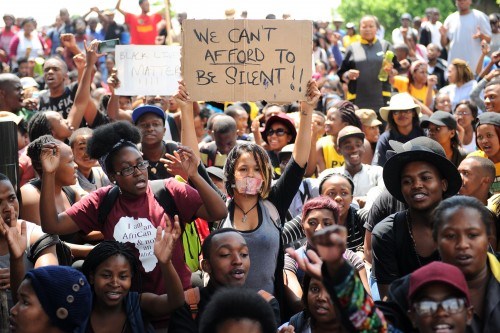
South Africans Still Languishing Decades After Anti-Apartheid Reforms
As editor and contributor to a new book, Marcel Paret has received attention for a new work called, Southern Resistance in Critical Perspective:The Politics of Protest in South Africa's Contentious Democracy. The book examines the conditions of contemporary South Africans and finds them participating in waves of protest over economic insecurity and the ANC'S broken promises. In comparing South African protesters with protesters globally, the authors find commonalities among the responses to economic crises. The book has received attention in mainstream press sources such as The Conversation.

Marcel Paret is an Assistant Professor of Sociology at the University of Utah and winner of the 2016-2017 University of Utah College of Social and Behavioral Sciences Superior Teaching Award

6 Ways Undergraduates Turn Passions into Publications
1. Community Engaged Learning gets you out of the classroom and into the community. Many community engaged learning classes in sociology not only offer a glimpse into local community organizations, but also offer an opportunity to study how they work, interview people served by them, and the people who work there. Out of these interactions, you can devise questions and methods for data collection and already you have the beginnings of a publishable study. To enroll in a community engaged learning course, check the latest online schedule and look for a sociology course with a section 002 specifying it has "Community Engaged Learning" as an attribute. Email the professor to find out if this community engaged learning experience has the potential to result in a publishable research project. Once you've identified the right class for you, add it to your schedule. You're on your way.
2. Are you ready for to embark on your own research? Have an idea for a topic or a few you would like to talk over with a professor? A Senior Thesis is an exciting option for serious students ready to devote 6 credit hours over two semesters: Senior Thesis 1 in Fall and Senior Thesis 2 in Spring. If you have found a professor who shares your research interests and your past experience tells you that you work well together, a Senior Thesis project is a great way to develop your thinking and research skills and put to work all those sociology classes you've been taking. Set up a meeting with Tom Quinn, Adjunct Assistant Professor in Sociology, to apply, then set up a meeting with your faculty sponsor to discuss your plan and the meetings you'll have along the way.
3. Are you an honor's student? Students in the University of Utah honors program have a unique opportunity to pursue a research project with a faculty sponsor to produce an Honors Thesis on a sociology topic.
4. Would you like to get paid for doing research? You can apply for the opportunity with the Undergraduate Research Opportunities Program (UROP).
5. Drinks and Dialogue is simply a coffee hour with the opportunity to get to know other sociology undergraduates, graduate students, and faculty members. It's a great way to brainstorm and connect. Find out what other students are doing, hear about research going on at the graduate level and meet the faculty who love working with students and watching them grow their research skills.
6. Are you interested in something that's not in the curriculum, a little off the beaten path, but well within the discipline of your major and is there a faculty member who researches this area, but maybe doesn't always have the chance to teach it? Talk to your favorite professor about an individual research course. In this situation, you can enroll in a directed reading and read up on the area or if you're ready to produce some writing, an individual research class allows the flexibility of devising a plan that results in a project.
Coauthoring experiences can lead to early publication for undergraduates. Here are some students who accomplished just that.
bold= faculty
* =undergraduate student
*bold = graduate student coauthors
*Weaver, S., *Gull, B., Ashby, J., & Kamimura, A. (2017). "An analysis of oppression and health education for underserved populations in the United States: The issues of acculturation, patient-provider communication, and health education classes. Journal of Education and Practice, 8 (15) 150-155. *The first author is a student of honor’s thesis/ Undergraduate Research Opportunities Program (UROP).
*Gorski, H.P., *Gull, B., Harris, T., Garfield, T., Ashby, J., & Kamimura, A. (2017). "Volunteer experiences at a free clinic in the United States: A qualitative study." Diversity and Equality in Health and Care, 14(3), 130-135. *The first author was an undergraduate student participating in a Senior Thesis individual research class.
*Carlson, M., Kamimura, A., *Al-Oabydi, S., Trinh, H.N., Franchek-Roa, K. (2017). "Readiness to manage intimate partner violence among resident physicians and medical students in the US." Health Equity," 1(1), 77-82. The first author was an undergraduate student participating in a Senior Thesis individual research class.
*Booth, C., *Nourian, M.M., *Weaver, S., *Gull, B., & Kamimura, A. (2017). "Policy and social factors influencing diabetes among Pima Indians in Arizona, USA. Public Policy and Administration Research," &(3), 35-39. *The first author is a student of UROP(Undergraduate Research Opportunities Program).
*Weaver, S. Ashby, J., & Kamimura, A. (2017). "Perceived diagnosis of type 1 and type 2 diabetes and lifestyle change among uninsured primary care patients. Health Services Research & Managerial Epidemiology," 4, 1-5. *The first author is a student of honor's thesis and UROP.
*Stephens, T., Kamimura, A., Yamawaki, N., Bhattacharya, H., *Mo, W., Birkholz, R., Makomenaw, A., & Olson, LM. 2016. "Rape myth acceptance among college students in the United States, Japan and India." Sage Open. DOI: 10.1177/2158244016675015. (2015 Impact factor: 0.57). Online publication date: December 1, 2016. *The first author is a student of Undergraduate Individual Research. Published, 12/2016.
Selected Faculty Publications 2015-2017

Daniel Adkins
Daniel E Adkins, Kelli M Rasmussen, Anna R Docherty. 2017. "Social epigenetics and human behavior." Oxford Handbook of Evolution, Biology & Society, edited by Rosemary L Hopcroft. Oxford University Press. (in press).
Daniel E Adkins, Kelli M Rasmussen, Anna R Docherty. (2017). “Social epigenetics and human behavior.” Oxford Handbook of Evolution, Biology & Society, edited by Rosemary L Hopcroft. Oxford University Press. (In press).
Lazarus Adua
Adua, L., York, R. and Schuelke-Leech, B.A., 2016. The human dimensions of climate change: A micro-level assessment of views from the ecological modernization, political economy and human ecology perspectives. Social Science Research, 56, pp.26-43.
Adua, L. and Lobao, L., 2016. Local governments that offer greater incentives for businesses do not retrench welfare services. USApp–American Politics and Policy Blog.
Brett Clark
Clark, Brett and Stefano B. Longo. 2017. "Marxism and Ecology." In Routledge Handbook of Marxian
Economics, David M. Brennan, David Kristjanson-Gural, Catherine P. Mulder, and Erik
K. Olsen, eds. London: Routledge, pp. 399-408.
*Auerbach, Daniel and Brett Clark. forthcoming. "Metabolic Rifts, Temporal Imperatives, and Geographical Shifts: Logging
in the Adirondack Forest in the 1800s." International Critical Thought.
Wade Cole
Cole, Wade M. 2016. “Human Rights and the Individual: Cross-Cultural Variation in Human Rights Scores, 1980 to 2010.” Social Forces (forthcoming).
Cole, Wade M. 2015. “International Human Rights and Domestic Income Inequality: A Difficult Case of Compliance in World Society.” American Sociological Review 80(2): 359–390.
Bethany Everett
Everett, Bethany G., Katherine McCabe, and Tonda L. Hughes. 2017. "Sexual Orientation Disparities in Mistimed and Unwanted Pregnancy Among Adult Women." Perspectives on Sexual and Reproductive Health.
Everett, Bethany G., Oluwatitofunmi O. Apatira and Katharine McCabe. 2016. “Changing Times: How is Same-Sex Relationship Equality Impacting the Fertility Care Landscape?” Pg 243-253 in Fertility and assisted reproductive technology: Theory, practice, policy, and research for healthcare practitioners. (eds S.L. Stevenson and P. Hershberger) New York, NY: Springer. Published, 02/01/2016.
Sarita Gaytán
Gaytán, Marie, S. 2017. "The Transformation of Tequila: From Hangover to Highbrow." Journal of Consumer Culture, v.17, n.1:62-84.
Gaytán, Marie, S. and Sergio De La Mora. 2016. “Queening/Queering Mexicanidad: Lucha Reyes and the Canción Ranchera.” Feminist Formations, v.28, n.3: 196-221.
Claudia Geist
Geist, Claudia, Megan Reynolds, and Marie Sarita Gaytan. 2017 “Unfinished Business: Disentangling Sex, Gender, and Sexuality in Sociological Research on Gender Stratification.” Forthcoming in Sociology Compass.
Geist, Claudia and Jennifer Tabler. 2017 “Somebody has to DUST! Gender, Health, and Housework in Older Couples.” Journal of Women & Aging
Akiko Kamimura
Kamimura, A., *Chen, J., *Aguilera, G., Stoddard, M., Sin, K., Pye, M., & Ashby, J. (2017). "Patient satisfaction and perspectives of continuity of care among free clinic patients in the USA: A qualitative study. Diversity and Equality in Health and Care, 14(4), 169-174. (2015 SJR-SCImago Journal Rank - Score: 0.12).
Kamimura, A., *Armenta, B.A., *Nourian, M.M., *Assasnik, *N., Nourian, K., *Chernenko, A. (2017) "Perceived environmental pollution and its impacts on health in China, Japan an South Korea." Journal of Preventive Medicine and Publich Health, 50(3), 188-194. Online pubulication date April 27, 2017.
Kim Korinek
Korinek, Kim, and Peter Loebach. 2016. “Migrant Networks, Immigrant and Ethnic Economies, and Destination Development,” chapter in the Sociology of Development Handbook, edited by Gregory Hooks et al. Berkeley, CA: University of California Press.
Korinek, Kim, Peter Loebach and *Ha Trinh. 2016. “Military Service and Smoking in a Cohort of Northern Vietnamese Older Adults.” International Journal of Public Health, 1-9.
Heather Melton
Stephens, Emily & Melton, Heather C. 2017. The Impact of Children on intimate Partner Abuse Victims' Service Seeking. Women and Criminal Justice, 27(3): 191-203.
Stephens, Emily & Melton, Heather 2016. “The Impact of Children on Decision Making of Intimate Partner Abuse Victims’ Service Seeking” Women and Criminal Justice (available online in November; DOI: 10/10801/08974454.2016.1247773)
Marcel Paret
Paret, Marcel, Carin Runicman, and Luke Sinwell (eds). 2017. Southern Resistance in Critical Perspective: The Politics of Protest in South Africa's Contentious Democracy. New York: Routledge, The Mobilization Series on Social Movements, Protest, and Culture.
Paret, Marcel. 2017. "Working Class Fragmentation, Party Politics, and the Complexities of Solidarity in South Africa's United Front." The Sociological Review 65(2):267-284.
Megan Reynolds
* = undergraduate student *bold = graduate student coauthors
Reynolds, Megan M. "Healthcare Public Sector Share and Life Expectancy in Rich Democracies." Forthcoming in International Journal of Health Services.
Reynolds, Megan M., *Alla Chernenko and Jen'nan G. Read. 2016. "Region of origin diversity in immigrant health: Moving beyond the Mexican case." Social Science and Medicine. Published online ahead of print, 0.1016/j.socscimed.2016.07.018
Michael Timberlake
Timberlake, M. Forthcoming "Chase-Dunn's scholarship on cities and urbanization." Journal of World System Research, special issue, Contributions of Christopher Chase-Dunn, Andrew Jorgenson, and Jeffrey Kentor, editors.
Invited lecture
Timberlake, M. 2017. "Chinese Cities in the World-System's City System: 2001-2014." Presented
at the International Conference on the Transformation and Impact of the Chinese Urban
Economy. Confucius Institute, University of Albany, State University of New York.
April 3-4.
Rebecca Utz
L. Utz, C. Berg, J. Butner. (2016). “It’s A Family Affair: Reflections About Aging & Health
within a Family Context.” The Gerontologist. doi: 10.1093/geront/gnw081. First published online: April 21, 2016
*Tabler, J. R. L. Utz, L. Ellington, M. Reblin, M. Caserta, M. Clayton, D. Lund. (2015). “Missed Opportunity:
Hospice Care and the Family” Journal of Social Work in End of Life and Palliative Care.11 (3/4), 224-243. *Selected as 2015 Best Paper by journal. Published, 10/2015.
Ming Wen
Wen M, *Su S., Li X & Lin D. 2015. “Positive youth development and problem behavior among adolescents in rural China: The role of parental migration” Social Science & Medicine: 132:261-269
Wen M & Kowaleski-Jones L. 2012. “The built environment and risk of obesity in the United States: Racial-ethnic disparities” Health & Place 18: 1314-1322
* = undergraduate student *bold = graduate student coauthors
Sociology Spotlights
Faculty
Faculty Awards
Faculty Awards from the University of Utah
Rebecca Utz, Associate Professor, received the University of Utah's Distinguished Teaching Award.
Marie Sarita Gaytán, Assistant Professor, was a winner of one of the 2016-2017 College of Social and Behavioral Science Superior
Research Award.
Marcel Paret, Assistant Professor, was a winner of one of the 2016-2017 College of Social and Behavioral Science Superior Teaching Awards.
Grants
Kim Korinek, Associate Professor, was awarded a 5-year R01 research grant "Health and Aging Post Conflict: War's Enduring Effects Among Survivors in Vietnam" fromt he National Institutes of Health.
Ming Wen, Professor, was awarded the Chiang Ching-Kuo Foundation Scholar Grant.
Academic Engagement
Claudia Geist, Assistant Professor of Sociology and Gender Studies, participated in a panel organized by the University of Utah's Hinckley Institute, A Campus-Community Dialogue Series "Understanding our Differences, Shaping our Future: Race, Class & Gender Inequities in the U.S."
After a Sociology Ph.D.
Peter Loebach, a graduate of the Department of Sociology Ph.D. program in 2015, wrote his dissertation,"Livelihoods and vulnerability to rapid-onset Natural Hazards: The Case of Hurricane Mitch." It explores the interplay of socio-economic factors of at-risk communities and their ability to mitigate the negative consequences of climate change disasters. Today, Prof. Loebach is Assistant Professor of Sociology and is co-leading the development of an emergency management program at Elizabeth City State University, a historically black university in Elizabeth City, North Carolina.
Graduate Students
Colleen (CoCo) James, Ph.D. candidate was honored with a Career Services Recognition Award for her work coordinating internships
Undergraduates
Jessica Palmer, Social Work major
developed a research project sponsored by Claudia Geist, Assistant Professor of Sociology,
"Increasing Student Engagement and Learning through Clicker Technology"
Palmer says, she would like find out if clicker technology might, "motivate students to participate in a large Intro to Sociology lecture class" and wondered if it could help "students feel more involved in large classes, participate more, and increase the understanding of concepts.
